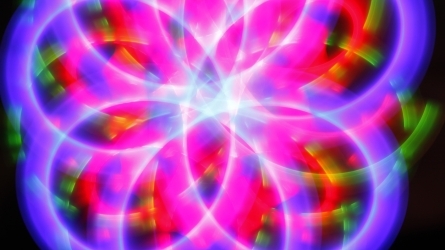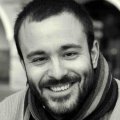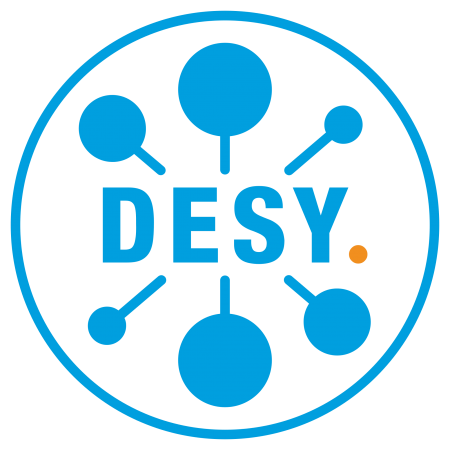
Joint International Workshop on Hadron Structure and Spectroscopy (IWHSS 2025) and the QCD Structure of the Nucleon (QCD-N'25)
Description
The five day long joint "21st International Workshop on Hadron Structure and Spectroscopy" and 6th workshop on the "QCD Structure of the Nucleon" (IWHSS-QCD-N'25) will be held in San Sebastián, Spain, from September 1 to 5, 2025.
The IWHSS comprises a series (21 editions) of annual workshops organized by COMPASS Collaboration on Hadron Structure and Spectroscopy, with most recent editions being the IWHSS-CPHI-2024 (Yerevan, Armenia), IWHSS-2023(Prague, Czechia) and IWHSS-2022 (CERN, Switzerland).
This joint workshop will also mark the continuation of the series of QCD-N meetings previously held in Alcalá de Henares (2021), Getxo (2016), Bilbao (2012), Frascati (2006) and Ferrara (2002).
The joint workshop will be preceded by the COMPASS Collaboration meeting on September 1 (morning).
The main focus of the workshop will be on recent developments in the study of nucleon and hadron structure, hadron spectroscopy and related topics in quantum chromodynamics. In particular, the transverse and longitudinal spin structure of the nucleon and 3D imaging in both momentum space (transverse-momentum-dependent parton distributions) and in mixed momentum and position space (generalized parton distributions), including novel correltions between current and target remnants, have gained great attention and seen enormous progress during the last decade. This partially required new approaches from theory and from experiments to obtain correlated information. Semi-inclusive and hard exclusive deep-inelastic lepton-nucleon scattering are indispensable tools in this endeavor and so is proton-proton collision. Furthermore, electron-positron annihilation has become a vital tool to obtain precision information on hadronization, the later being used for probing nucleon structure. Progress has been achieved in the description of the nucleon structure in terms of integrated parton distributions as reflected in the PDF fits using both conventional but also neural-network approaches, all the way to global hybrid fits of parton distribution and fragmentation functions. Lattice gauge theory has been a complementary source of information on the structure of the nucleon, and lately also methods from quantum information more and more find their way to this field.
Experimental results on deep-inelastic scattering (inclusive, semi-inclusive, and exclusive), hadron-hadron collisions, and e+e- annihilation will be reviewed. The conference will emphasize the recent progress in the field from theory, lattice-QCD, and phenomenology. In this edition of the conference series, emphasis will be given to bridging the low-scale description of the nucleon structure and of hadronization and the high-scale observables from collider experiments and on the prospects of new – already planned or simply envisioned – facilities worldwide.
The joint workshop will be held as a single event with a unique timetable and schedule. The scientific programme of the joint workshop will cover the following topics:
- Spin and momentum structure of the nucleon
- Multi-dimensional maps of nucleons: TMDs, GPDs and GTMDs
- Fragmentation and fracture functions
- Meson structure and spectroscopy
- Search for exotics and baryon resonances
- Lattice QCD
- Confinement QCD and Fundamental symmetries
- Dark matter/dark photon searches
- Fixed-target and collider experiments
- Future measurements and experimental proposals
The conference will be organized in plenary sessions. Young physicists–post-docs and students–are especially encouraged to attend. The conference will be held at the Centro Carlos Santamaría in San Sebastián, Spain.
ACCOMMODATION
Here's the ACCOMMODATION GUIDE for Donostia/San Sebastián. You'll also find additional tourist information, such as a city map, parking plan, gastronomic guide and further information.
ORGANIZERS
- Harut Avakian (Jefferson Lab)
- Miguel Echevarria (EHU QC)
- Bakur Parsamyan (AANL, CERN, INFN Torino)
- Gunar Schnell (EHU QC, Ikerbasque)
CONFERENCE INDICO PAGE
All details including abstract submission and pre-registration is done via the workshop's indico page https://indico.cern.ch/e/IWHSS-QCDN-2025. Payment will be handled via the UIK workshop page after pre-registering.
For inquiries, please email iwhss-qcdn-2025@cern.ch.
Objectifs
Experimental results on deep-inelastic scattering (inclusive, semi-inclusive, and exclusive), hadron-hadron collisions, and electron-positron annihilation will be reviewed. The conference will emphasize the recent progress in the field from theory, lattice QCD, spectroscopy, and phenomenology. The workshop will be completed by presentations of projects planned all over the world at future high-performance facilities for a deeper understanding of the structure of nucleons.
Activité s'adressant à
- Étudiants universitaires
- Professionnels
Directeurs

Gunar Schnell
UPV/EHU & Ikerbasque
Prof. Dr. Gunar Schnell is an IKERBASQUE Research Professor associated with the Department of Physics and the EHU Quantum Center at the University of the Basque Country UPV/EHU. His research interests focus on the experimental and phenomenological investigation of Quantum Chromodynamics (QCD), in particular on nucleon structure and hadron formation. He is Spokesperson of the HERMES collaboration and member of the AnDY, H1, Belle and Belle II collaborations. G. Schnell participates in several Scientific/Advisory Committees of conferences and organized numerous workshops. He served as a long-standing member of CERN's PS and SPS Programme Committee and as co-convenor of CERN's Physics Beyond Collider QCD working group, contributing to the Physics Briefing Book of the 2020 European Strategy for Particle Physics update, and co-convening the current CERN North Area ion-beam requirements and the neutrino-physics reach study groups. Since Spring 2024, he has been serving as the Experimental Coordinator of Physics Beyond Collider.

Miguel García Echevarría
Universidad del País Vasco UPV/EHU
Prof. Miguel García Echevarría is an Associate Professor at UPV/EHU. His research mainly focuses on the theoretical and phenomenological study of Quantum Chromodynamics (QCD), specially the multi-dimensional structure of hadrons, using effective field theories of QCD, with the aim of better understanding QCD and how the properties of hadrons emerge from the dynamics of their constituent quarks and gluons. The precise knowledge of hadron structure is also essential to be able to extract any sensible information from hadron collider data. According to INSPIRE database he has 68 works with an h-index=29 and more than 4500 citations, among which 38 are publications in high-impact international peer-reviewed journals. M.G. Echevarría is an active referee for several high-impact journals and evaluator for different funding calls. He has chaired 2 international and 1 national conferences, as well as contributed to more than 50 international conferences, giving dozens of invited talks and seminars around the world. He has (co-)supervised several master and PhD students. M.G. Echevarría has ample experience in contributing to research projects, having received funds from different European, national and regional grants.
Tarifs inscription
| Matrícula | jusqu'au 31-07-2025 | jusqu'au 27-08-2025 |
|---|---|---|
| 300,00 EUR | 350,00 EUR | |
| 0 EUR | 0 EUR |
Lieu de l'événement
Gipuzkoa
Gipuzkoa









